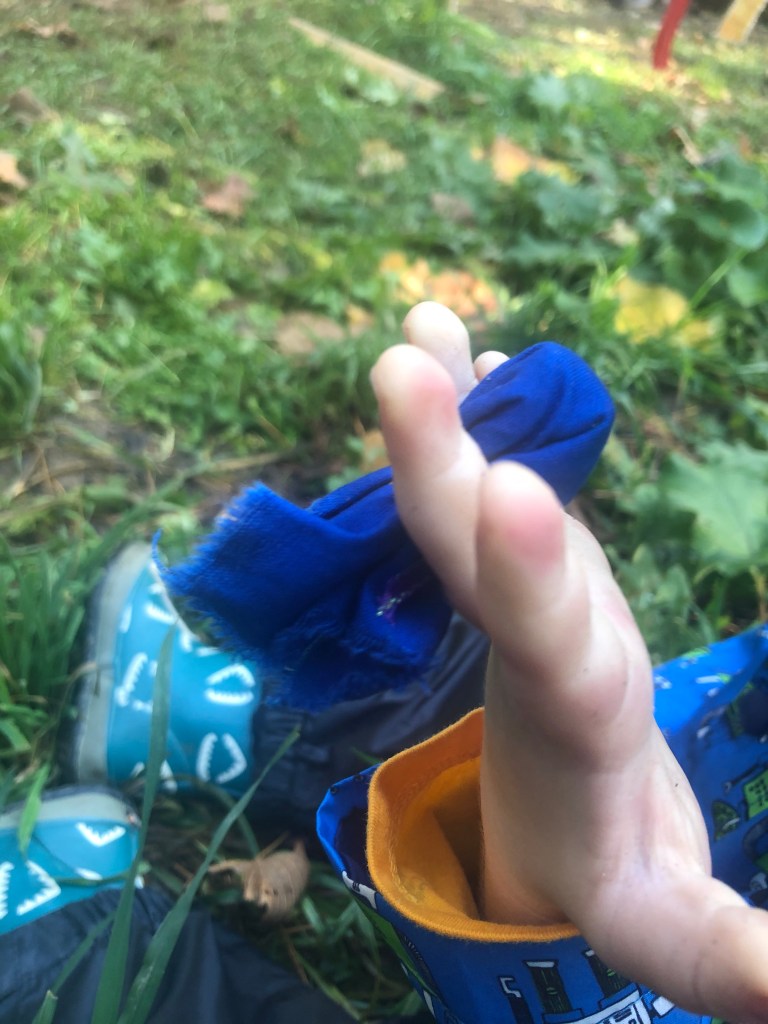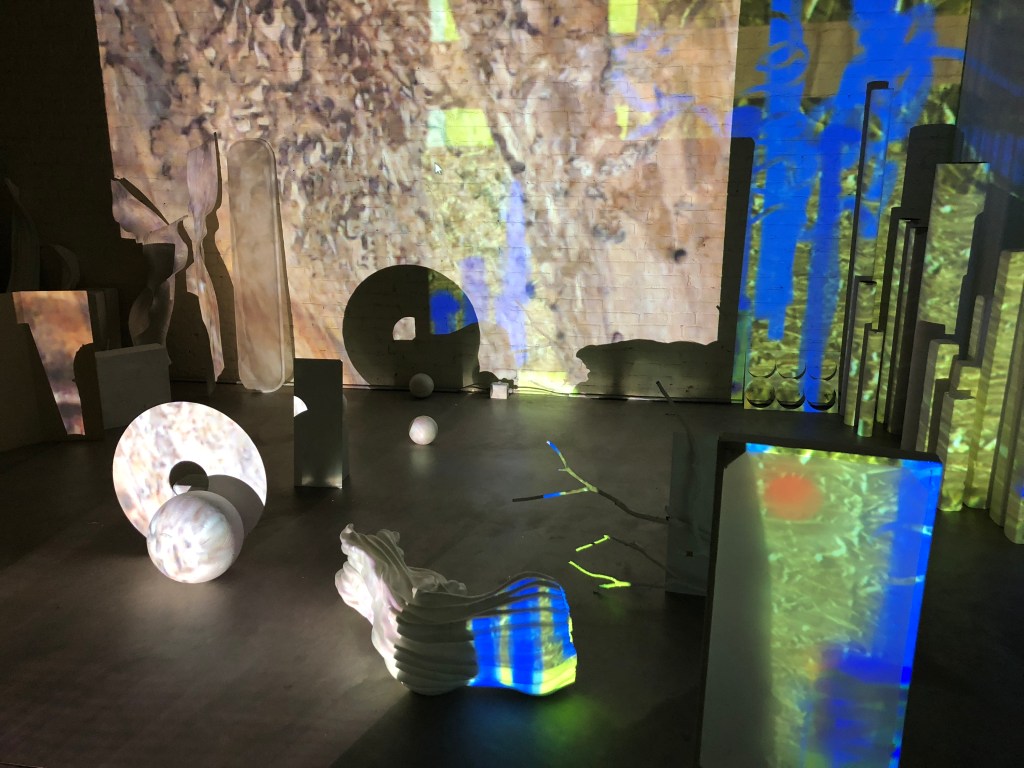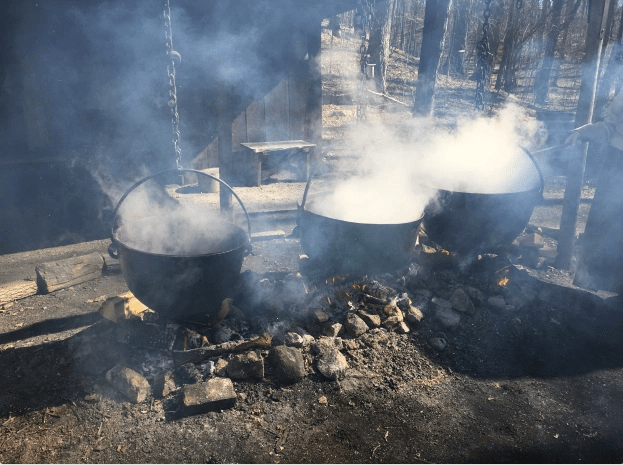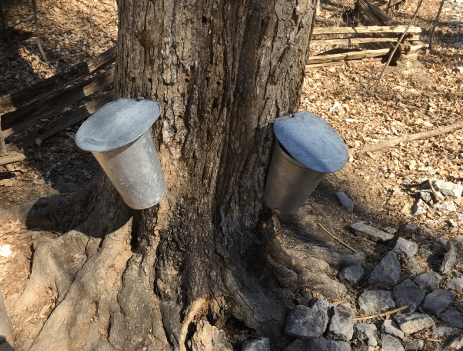By: Diane Kashin, Ed.D, RECE.
The York Region Nature Collaborative has been offering a series of Land as Teacher webinars. On February 13th, I had the honour of co-presenting Land as Teacher: Foundations for Early Learning, the fifth offering in the series. Rather than a presentation, it was a dialogue about contexts and perspectives between Hopi Martin, approximately 150 participants and me. We specifically were considering a Seasonal Pedagogy for the early years. This seasonal pedagogy reflects an Indigenous worldview brought forward from the work that Hopi has been doing with his Auntie, Jacque(line) Lavalley. I am very grateful for my relationships with Jacque and Hopi for the opportunity to expand my understanding and knowledge of early learning from a vitally important perspective. As I am seeking to see the world of young children from this new to me but very old and traditional perspective, I am inspired to share the learning with others.

While supporting others in their professional development, I have continuously set goals and aspirations for my own. I am a social constructivist. I know that I do not learn in isolation. The work of Lev Vygotsky features prominently in my philosophy and my life. It is through others, that I have developed into myself. This an adaption of a quote from Vygotsky that opens my doctoral dissertation written in 2007 about emergent curriculum. While doing this research, my learning path took me to Reggio Emilia, Italy figuratively and literally. I have learned about the importance of listening with open ears, hearts and minds to the voices of others. When we are open to consider many different voices and take care not to value or privilege one voice over another (Penn, 2005) we are representing a worldview shared by the philosophy of Reggio Emilia Approach and the Ojibwe Sacred Circle. To hear multiple perspectives we need to listen. Rinaldi (2006) explains, listening is a mode of thinking and perceiving oneself in relation to others and the world. When we listen with our heart, our contexts, minds, and spirits broaden.
I have continued to read and to engage in dialogue about the approach that has figured prominently in my professional life. Three years ago, I started on a path to learn from an Indigenous worldview. The impact has been profound professionally and personally. With Hopi’s guidance I started the journey with Asemaa (tobacco) and Sacred Fire. I had a vision that my journey forward would be of interest to others. With the medicine in hand, I met Hopi’s Auntie, and on behalf of the York Region Nature Collaborative shared my vision for professional learning. My heart is full of gratitude and appreciation for where my path is now leading. Jacque will be joining Hopi for the next Land as Teacher webinar – The Gifts of Maple Trees on March 20th. I hope you can join us to celebrate (virtually) the coming Spring Equinox with Gokoomis (Grandmother) Jacque(line) Lavalley who will be sharing Traditional Ojibwe and Potawatomi stories about Maple Syrup and Oshhkaabewis (Helper) Hopi Martin who will give a virtual tour of the Sugar Bush at Kortright Centre for Conservation following a “Seasonal Pedagogy” for young children!
The webinar will offer more opportunities to reflect on the cycle of Birth, Movement, Relationships and Passing. This Seasonal Pedagogy can be applied to adult learning in addition to the learning of children. This life cycle happens naturally in children’s play and learning. This life cycle also happens naturally in professional learning. By looking at my professional learning paths from this perspective, I have been able to be more reflective and open to new learning. For children to learn they need to have the freedom to play, explore and inquire. They need to have agency in their play – they need to self-initiate and lead their play. I believe it is the same for adults. I believe that the learning will be more impactful to practice, it should arise from a seed of professional interest that is cultivated to grow.
Birth: Embarking on this professional journey I have grounded my learning from the context of the Land where I am from and the Land where I now reside. To grow I must first consider my own well-being. I have walked my path of learning while I healed from cancer. I am now ready to learn.
Movement: As I engage in learning inspired by my own context and life experience there is movement in my learning. Professional learning that is self-directed starts from a seed and grows with a connection between theory and practice creating a sense of belonging to the subject of the learning. As I continue to engage whether it be from attending a webinar, searching the web or doing my own research on the Land with my grandchildren, I can see how I am moving within this cycle.
Relationships: Observing and documenting children’s developing relationships with the Land, to each other and to the adults in their lives offers educators opportunities to reflect and consider next steps. In my professional journey relationships develop through multiple forms of engagement with my learning. Each step taken leads to more movement through the cycle and deepening relationships to what I am learning and who I am learning with.
Passing: In the sunset of my life I think often about my legacy, about giving back. The concept of reciprocity is important to me. I have gained so much from being an early childhood educator. When the seed of interest in Indigenous perspectives revealed itself to me, I moved to engage in building relationships and now share my learning as I pass it on to others.
Passing on to others broadens perspectives. It is inclusive. It is important to the work that we are doing that others are included. We look forward to connecting with educators from all over the world through the Land as Teacher Community of Practice with Storypark. This will be a forum to consider how learning happens through play as well as a guide for professional learning through the lens of a Seasonal Pedagogy. What do you think? Will you join us?



Will we still get to read your emails, like this one, or only through Story park? Thanks Marcy
________________________________
LikeLiked by 1 person
Yes Marcy! I will still be blogging about many things in addition to the Seasonal Pedagogy 🙂
LikeLike
Very well said. Informative, motivating, and enriching.
LikeLiked by 1 person
Diane, the seasons within each of us makes perfect sense and this is the first time I have read this or even thought about it. Beautiful.
Thank you
LikeLiked by 1 person
listening is a mode of thinking and perceiving oneself in relation to others and the world. When we listen with our heart, our contexts, minds, and spirits broaden.
Check out my book at Amazon! Protocols in the Classroom: Tools to Help Students Read, Write, Think, and Collaborate
>
LikeLike